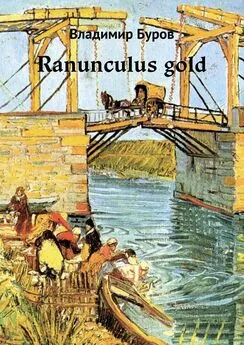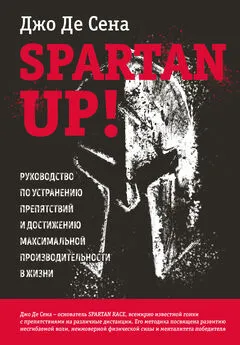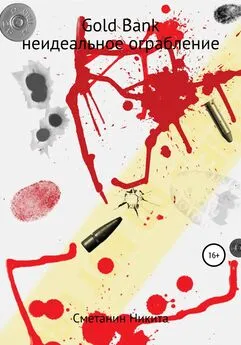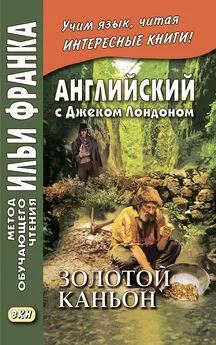Clive Cussler - Spartan Gold
- Название:Spartan Gold
- Автор:
- Жанр:
- Издательство:неизвестно
- Год:неизвестен
- ISBN:нет данных
- Рейтинг:
- Избранное:Добавить в избранное
-
Отзывы:
-
Ваша оценка:
Clive Cussler - Spartan Gold краткое содержание
The debut of a brand-new, action-packed series from the #1 New York Times bestselling master of 'pure entertainment'.
Thousands of years ago, the Persian king Xerxes the Great was said to have raided the Treasury at Delphi, carrying away two solid gold pillars as tribute. In 1800, Napoleon Bonaparte and his army stumble across the pillars in the Pennine Alps. Unable to transport them Napoleon creates a map on the labels of twelve bottles of rare wine. And when Napoleon dies, the bottles disappear.
Treasure hunters Sam and Remi Fargo are exploring the Great Pocomoke Swamp in Delaware when they are shocked to discover a World War II German u-boat. Inside, they find a bottle taken from Napoleon's 'lost cellar.' Fascinated, the Fargos set out to find the rest of the collection. But another connoisseur of sorts has been looking for the bottle they've just found. He is Hadeon Bondaruk - a half- Russian, half-Persian millionaire. He claims to be a descendant of King Xerxes himself.
And he wants his treasure back.
Spartan Gold - читать онлайн бесплатно полную версию (весь текст целиком)
Интервал:
Закладка:
“Do you remember anyone ever nosing around about Delphi when you were there?” Remi asked. “Anything unusual?”
“No, not really. Just standard research requests from universities for the most part.” Evelyn paused for a moment. “Wait a second. There was this one guy about a year ago . . . he was from the University of Edinburgh—the School of History, Classics, and Archaeology, I think. Weird character.”
“How so?”
“He’d applied for a permit to examine the Delphi artifacts, and we granted it. There are rules for hands-on examinations—things you can and can’t do with the objects. I caught him breaking one of the biggies—or almost breaking one, that is. I walked in on him trying to do some kind of acid test on one of the columns.”
“Which columns?” Remi asked.
“The Karyatids. They stood at the entrance to the Siphnian Treasury at Delphi.” Before either Remi or Sam could ask the next question, Evelyn answered it. “A Karyatid is a stone column—usually marble—in the shape of a robed Greek woman. The most recognizable ones are at the Athens Acropolis.”
“What kind of test was he trying to do?” Sam asked.
“I don’t remember. He had a jeweler’s hammer and pick and some kind of acid kit. . . . I put it all down in my report to the board. I may still have a copy. Let me look while we talk.”
They heard Evelyn moving about, then the rustle of cardboard and the shuffling of paper.
Remi asked, “What did he say when you caught him?”
“That he’d misunderstood the rules, which was bunk. I gave him the rules myself. He was lying, but he refused to say what he was up to. We ejected him and notified the guy’s department chair at Edinburgh.”
“No police?”
“The board decided against it. Lucky for him, too. The Greeks take that kind of thing seriously. He would have done jail time. I heard Edinburgh fired him, though, so that’s something. I don’t know what happened to him after that. Here’s the report. . . . His name was Bucklin. Thomas Bucklin.”
“And the acid kit he had?” Sam asked.
The sound of flipping pages came through the speaker. “This is strange,” Evelyn said. “I’d forgotten this part. He was using nitric acid.”
Remi said, “Why’s that strange?”
“It’s not a standard artifact test. It’s highly corrosive. We don’t use it.”
“Who does?”
Sam answered. “Metallurgists. It’s used to test for gold.”

They talked for a few more minutes, then hung up. Sam opened his MacBook Air—one of the few things they’d brought along in his backpack from Königssee—and logged into the hotel’s wireless Internet connection. There were almost two thousand hits for the name Thomas Bucklin. It took only a few minutes to narrow their search to the right one.
“Bucklin’s written a number of papers on classical history, mostly focusing on Persia and Greece, but nothing more recent than a year ago,” Sam said.
“About the time he got fired,” Remi said, looking over his shoulder. “Are any of his papers available?”
“Looks like JSTOR has them all.” JSTOR was a nonprofit online archive for scholarly work whose subjects ranged from archaeology and history to linguistics and paleontology. Sam, Remi, and Selma used the site extensively. “I’ll have Selma download and forward them.” Sam typed up a quick e-mail and sent it. Selma responded thirty seconds later: Five minutes .
Remi asked, “Any mention of what he’s been up to since leaving Edinburgh?”
“Nothing.”
Sam’s e-mail chimed. Selma had found fourteen papers by Bucklin; they were included as pdf attachments. “Here’s something interesting,” Sam said. “According to Selma, Bucklin had been on a sabbatical from Edinburgh when he showed up on Evelyn’s doorstep.”
“So he was freelancing,” Remi replied. “He wasn’t there on behalf of the university. Who the heck is this guy?”
Sam stopped scrolling, his fingers frozen over the keyboard. He leaned closer to the screen and squinted. “There’s your answer. Have a look.”
Remi leaned over his shoulder. One of Bucklin’s papers included a photo of the author. It was small, and in black-and-white, but there was no mistaking the mostly bald pate, fringe of orange hair, and black-rimmed glasses.
Thomas Bucklin was the lab-coated man they’d encountered in Bondaruk’s private laboratory.
CHAPTER 52
Bucklin’s papers were compelling, if not well received or widely circulated. According to JSTOR, Sam and Remi had been only the second party to purchase them since their publication. They had little trouble guessing the identity of the other interested party.
Sam forwarded the papers to his iPhone and gave Remi the MacBook, then they spent the next three hours wading through Bucklin’s work. Not wanting to taint one another’s conclusions, they waited until they were finished to compare notes.
“What do you think?” Sam asked. “Nutcase or genius?”
“Depends on whether he’s right or wrong. There’s no mistaking he’s obsessed with Xerxes and Delphi. His version of the invasion didn’t make him any friends in the academic world.”
Through years of painstaking research Bucklin had come to an outlandish conclusion: that Xerxes’ raid of Delphi had been more of a success than Greek historians admitted. According to Bucklin, in the weeks leading up to the invasion the keepers of the Siphnian Treasury devised a scheme to protect their wealth. Knowing no place would be safe from Persian plunder, the Siphnians melted down their stores of gold and cast it into a pair of Karyatids. When the columns cooled they were covered in gypsum plaster and put in place of the real columns that stood astride the treasury’s entrance.
For reasons unknown the Persian raiding party did not fall for the ruse. On Xerxes’ orders, a detachment of two hundred specially trained troops called Immortals fled with the Karyatids, intending to head north out of Greece before swinging east through Macedonia and Thrace and returning to the Achaemenid Dynasty capital of Persepolis, where Xerxes planned to melt down the Karyatids and have them cast into a massive throne, a memorial to his triumph over the Greeks that would sit in his Hall of a Hundred Columns for eternity.
Unbeknownst to the Immortals, word of their desecration of Delphi reached Sparta less than a day after the Persian raiding party left. A phratra of Spartan soldiers, roughly twenty-seven in all, gave chase, intending not only to recover the Karyatids, but also to avenge the brothers they’d lost at the Battle of Thermopylae.
They caught up to the Immortals in present-day Albania and cut off their easterly escape route. For three weeks the Spartans hounded the Immortals, chasing them north through Montenegro, then Bos nia and Croatia, before finally cornering them in the mountains of northwestern Slovenia. Even outnumbering them ten to one the Immortals were no match for the Spartans. The Persian raiding party was all but destroyed. Of the original two hundred that had left Greece a month before only thirty survived, these spared to serve as porters for the Karyatids.
The Spartan commander decided not to return home, not while Xerxes’ army was still ravaging their country. The columns had become a symbol of Greece’s survival, and the Spartans pledged to die rather than let them fall into Xerxes’ hands. Not knowing how far the Persian invasion would advance, the Spartans headed north out of Slovenia, intending to find a place to hide the columns until it was safe to bring them home. The phratra was never seen again, save a lone soldier who stumbled into Sparta a year later. Before succumbing to his exhaustion and the ravages of exposure, he claimed that the rest of his comrades had perished and the Karyatids had been lost with them. Their location died with him.
“So that’s the last puzzle piece,” Remi said. “Or one of the last, that is. How Bondaruk and Bucklin found each other we may never know, but it’s clear Bondaruk believes the story. He thinks Napoleon’s Lost Cellar is a treasure map to the Siphnian columns. They’re the family legacy he’s trying to recover. Remember what else Kholkov said in Marseille about Bondaruk’s motive: ‘He’s simply trying to finish what was begun a long time ago.’ ”
Sam nodded slowly. “The bastard wants to melt them down, just like Xerxes did. We can’t let him get away with it, Remi. As archaeological artifacts, those Karyatids are priceless.”
“Beyond priceless. It all fits: After the Battles of Plataea and Mycale, Xerxes abruptly hands over control of the army to Mardonius, and goes home—goes home assuming the Karyatids are on their way. Most accounts have him returning to Persepolis and starting a massive building program—including the Hall of a Hundred Columns.”
“Where Bucklin claims he planned to display the throne. I’ll give you one guess where Bondaruk plans to put his throne.”
“The Persian playground in the basement of his estate,” Remi replied. “It’s sad, if you think about it. Xerxes died waiting for a prize that was never coming—a prize that meant relatively nothing to the Greeks—and Napoleon died waiting for his son to follow the riddles and recover the same prize.”
“We might as well keep the streak alive,” Sam said.
“What do you mean?”
“We make sure Bondaruk dies never getting his hands on the Karyatids. He’ll be in good company.”

At six the next morning Sam’s iPhone trilled. It was Selma. “It’s early, Selma,” he said groggily.
“It’s late here. Good news. We’re getting better at this, I think. We’ve deciphered the code, but we thought you’d want first crack at the riddle.”
“Okay, e-mail it to me.”
“On its way. Call me later.”
Sam shook Remi awake. She rolled over just as Sam’s e-mail chimed. “Another riddle,” he said.
“I heard.”
He called up the e-mail and together they read the lines:
Man of Histria, thirteen by tradition
House of Lazarus at Nazareth
Son of Morpeth, Keeper of Leuce, the land that stands alone.
Together they rest.
“Any thoughts?” Sam asked.
“Ask me after coffee.”

Having already unraveled two of the riddles, Sam and Remi now better understood the patterns Napoleon and Laurent had used to produce them. A patchwork of double meanings and obscure historical references, the solution to each puzzle depended upon the fusion of its individual lines.
By midmorning they’d gathered from the Internet the most obvious references for each line:
The first— Man of Histria, thirteen by tradition —likely referred to Histria, the Latin name for Istria, a peninsula between the Gulf of Trieste and the Bay of Kvarner in the Adriatic Sea.
The second— House of Lazarus at Nazareth —could have hundreds of meanings. The name Lazarus was mentioned twice in the Bible, once as the man Jesus raised from the dead, the other in the parable of Lazarus the Beggar. Nazareth, of course, was the childhood home of Christ.
The third— Son of Morpeth, Keeper of Leuce —was also too broad to nail down. Morpeth was a town in northeast England, and in Greek mythology Leuce was a nymph, the daughter of Oceanus.
Читать дальшеИнтервал:
Закладка:


![Джо Сена+ - Spartan up! Руководство по устранению препятствий и достижению максимальной производительности в жизни [litres]](/books/1059232/dzho-sena-spartan-up-rukovodstvo-po-ustraneniyu-pr.webp)







